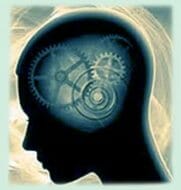Bipolar therapy treatment usually refers to “talk” therapy for bipolar, as opposed to bipolar drug treatment with medications like lithium.
Some people prefer therapeutic treatments because they perceive them as a more natural or holistic bipolar treatment option than strong medications with equally strong side effects in some cases.

However, it is very important to understand that ALL reputable and professional bipolar treatment guidelines insist on mood stabilizing medication as the front-line treatment option.1
Therapy is very effective – even necessary – but it is an add-on or “adjunct” to medication treatment. Genuine Bipolar I must be controlled with mood stabilizer medications to prevent episodes of mania or depression.
Please note that we encourage this approach and that the following discussion of various therapies assumes that they are being used in conjunction with a mood stabilizer prescribed by a qualified medical expert.
Personally I have experienced huge improvements from therapy and now experience far fewer and far less extreme episodes of mania and/or depression. Not only are my mood swings fewer and less drastic, but I have been able to cut back significantly on medication with the guidance of my psychiatrist.
Taking fewer drugs and still enjoying increased stability is wonderful. I hope you will take the time to read carefully about the different types of therapy available in order to discover the best bipolar treatment option for YOU.
Bipolar treatment options
What are some of the most effective, popular and proven bipolar disorder therapies?
Reminder
Talk therapy is one half of bipolar treatment, with medication usually also being necessary.2
In no particular order:
1. Cognitive Behavior Therapy (CBT)
2. Psychoanalysis or Psychodynamic Psychotherapy
3. Psycho-education (which is often part of CBT and other therapies)
4. Family Focused Treatment (FFT)
5. Interpersonal and Social Rhythm Therapy (IPSRT)
6. Bipolar Counseling using eclectic methods
7. Positive Psychology approaches and interventions

8. Narrative Therapy
9. Mindfulness-Based Cognitive Therapy
10. Dialectical Behavior Therapy (DBT)
11. Functional Training
My personal preference is for the newer and more practical therapies such as IPSRT, Functional Training, Positive Psychology, and ACTUAL TOOLS such as Mood Charts, Wellness Plans and Treatment Contracts.
However, I have also had substantial benefit from learning some DBT techniques such as self-soothing and distraction.
In the first few days following my diagnosis and in the course of building this Bipolar-Lives.com website, I have also done a ton of reading, research and learning about many aspects of Bipolar Disorder so I also have to acknowledge many gains from my own, self-administered pyscho-education.
Read the following snapshots and research the bipolar treatment therapies that appeal to you.
Also, please note that the evidence of effectiveness is particularly strong for the benefits of psycho-education, Family Focused Treatment (FFT), Cognitive Behavioral Therapy (CBT) and Interpersonal and Social Rhythm Therapy (IPSRT).
No single type of “psycho” or “talk” therapy has been proven to be uniformly superior in treating people with bipolar disorder.
Also keep in mind that psycho-education and CBT are the most studied to date and therefore have the most research and evidence behind them. Personally, I am not aware of any strong and consistent evidence for psychoanalysis in treating bipolar disorder and would suggest finding a therapist who is more interested in your present concerns and in guiding you to develop coping skills that will contribute to a positive future rather than on your past or your “unconscious” mind.
Bipolar therapy snapshots
Cognitive Behavior Therapy (CBT)
According to the Black Dog Institute:
“Cognitive behaviour therapy aims to show people how their thinking affects their mood and to teach them to think in a less negative way about life and themselves. It is based on the understanding that thinking negatively is a habit, and, like any other bad habit, it can be broken.”
See Cognitive-Behavioral Therapy and Bipolar Disorder.
Psychoanalysis/Psychodynamic Psychotherapy
Think lying on a couch while Sigmund Freud discusses whether dreaming about missing the bus symbolizes your unconscious rage towards your father. The classic “talk therapy”, psychoanalysis is a protracted method for exploring the unconscious and the past to discover the roots of neurosis.
Psychoeducation
Another very effective bipolar therapy treatment strategy! See a free, real life example at Bipolar Disorder Education Program.
Family Focused Treatment (FFT)
Family Focused Treatment for Bipolar Disorder is a therapy that incorporates psycho-education and other strategies, recognizing the importance of the family environment in maintaining medication compliance and preventing relapse. Once a patient stabilizes, they and their family are educated about the nature, symptoms and treatment for Bipolar Disorder with an emphasis on building communication and problem solving skills.
Interpersonal and Social Rhythm Therapy (IPSRT)
I LOVE IPSRT! It is a very practical and very targeted bipolar therapy treatment that focuses on establishing healthy physical and social rhythms and routines.
Bipolar Counseling using Eclectic Methods
Bipolar Counseling is a cooperative and practical talk therapy where the counselor and patient work together to solve problems and improve coping skills. Results are highly variable as so much depends on the skills and approach of the individual counselor. Obviously you will do much better with someone who has specific expertise in bipolar disorder.
Positive Psychology approaches and interventions
Positive Psychology seeks to build optimism, happiness and resilience through day to day activities that are empirically proven to promote a positive mind set and emotions. It is a strengths-based approach that guides you in identifying your personal attributes and positive qualities and building upon those characteristics. When coping with Bipolar Disorder, there is a lot of focus on deficits and areas of dysfunction, which can adversely impact self-esteem. Positive psychology is empowering and helps you acknowledge that you are not just ‘Bipolar.’ You have many amazing qualities that make you valuable and unique. See What is Positive Psychology?
Narrative Therapy
Narrative Therapy
is based on understanding the “stories” you tell about your life. It positions you as the expert on you and is non-blaming, seeing people as separate from their problems. The Narrative Therapist works with you to identify your strengths and apply them in new and extended ways.
Mindfulness-Based Cognitive Therapy (MCBT)
“Mindfulness-based Cognitive Therapy (MBCT) combines aspects of cognitive therapy with training in meditation. MBCT teaches people skills that enable them to become more aware of their thoughts without judgment, viewing negative (positive and neutral) thoughts as passing mental events rather than as
facts.” See Using Mindfulness for Bipolar Disorder.
Dialectical Behavior Therapy (DBT)
Dialectical Behavior Therapy (DBT) combines mindfulness, stress tolerance, emotional regulation, and interpersonal skills strategies to help manage symptoms associated with intense emotions, difficulty managing stress, and communication with others.
Functional Training
Functional Training is a remedial and practical bipolar therapy treatment that teaches people with bipolar disorder skills to overcome any gaps in cognitive or social functioning. Think of it as like Occupational
Therapy or rehabilitation/physiotherapy for the mind.
My personal turning point? IPSRT! This is more than just creating lots of structure and schedules, so make sure you work with an experienced bipolar disorder therapist for the best treatment outcome.
Bipolar therapy summary
Bipolar therapy treatment is definitely NOT “one size fits all”.
If any of the above therapy or treatment snapshots resonates with you, please do the follow-up research and give it a try.
My personal advice:
1. Remember the saying “the only point of power is in the present” and look for a therapist with a practical focus who has formal training and qualifications with specific bipolar disorder expertise.
2. USE TOOLS such as mood charts, a wellness plan, a treatment contract and a daily schedule!
References:
1http://ibpf.org/treatment
2https://www.ncbi.nlm.nih.gov/pmc/articles/PMC4536930/
 Medically reviewed by
Medically reviewed by